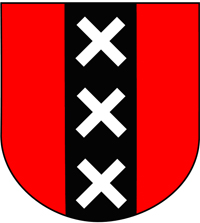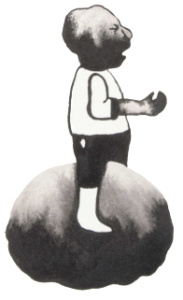On 2 September 2008 the Court of Appeal of Amsterdam ruled that two brothers have acted unlawfully towards the Urban District of the Center of Amsterdam and six of its officials by qualifying them in a full page article in De Telegraaf as administrative blackmailing mafia and accusing them of a series of criminal offenses. In these proceedings, the Urban District and the officials were represented by Eberhard van der Laan of Kennedy Van der Laan.
The Facts
In 1999, the brothers bought a building situated at Spinozastraat 37 in Amsterdam. An accommodation office with ten rooms was established in the building. The brothers got involved in a large number of legal and administrative proceedings, amongst other things because (i) the occupants were of the view that their rooms were self-contained accommodation, (ii) the Urban District of the Center of Amsterdam was of the view that there was illegal use as a hotel, (iii) permits were granted and once again withdrawn and (iv) the brothers and their accomplices were harassing and threatening occupants.

On 27 August 2003 the brothers reported a number of officials involved to the police, accusing them of perjury, forgery of documents, slander, defamation, breach of official secrecy, fraud, destruction and unlawful entry of a dwelling. Three days after this reporting to the police, on 30 August 2003, a one-page article appeared in national newspaper De Telegraaf in the name of two journalists. The title was: “PENSION HOMMELES!” (a reference to a Dutch television program that was broadcasted in the fifties, which roughly translates into ‘Boarding House Brouhaha’). The brothers and their two lawyers were quoted elaborately, amongst other things with the statements: “Urban District of the Center of Amsterdam Criminal Organization” and “We have been declared outlaws by the administrative blackmailing mafia, but now we strike back”. The article elaborately discussed the reporting to the police of the criminal offenses.
The Urban District and the officials went to Court in connection with this article. On 30 August 2006 the Court of Amsterdam ruled that the honor and reputation of the Urban District and the officials had been injured by this article, but ruled that the brothers had not acted unlawfully. What played an important role according to the Court was that in principle civilians are free to express their opinion regarding the performance of public institutions and to show their dissatisfaction in this respect.
The Judgment
The Amsterdam Court of Appeal, however, has ruled that the article is unlawful towards the Urban District and “even more” towards the officials. The brothers did not give a good substantiation by facts for the serious qualifications used in the article. The accusations were never confirmed afterwards either. In addition, the Court has considered a number of other interesting points.
Liability
The article was not published in the name of the brothers, but in the name of the journalists. Nevertheless, the brothers can be held liable for its contents, according to the Court of Appeal. The brothers have sought publicity, have provided the journalists with the material for their article and have given their unvarnished opinion on the Urban District. Furthermore, as the Court of Appeal has observed, it may be assumed that the brothers have inspected and could comment on the article before its publication. The brothers have never indicated their disagreement to any part of the article.
According to the Court of Appeal, the brothers are also liable for the statements of their lawyers in the article. Lawyers must operate independently, but the brothers are clients with commissioning authority over the lawyers with respect to their assistance to the publication. They will have spoken about the policy to be followed, including the reporting of crimes to the police and the hearing of witnesses. They will also have spoken about the extent and the manner of publicity to be sought. The brothers have never argued that their attorneys had done so without the brothers being consulted.
Criticism on the Officials
It is generally accepted in case law that public institutions have to accept a lot of criticism. More or less the same is true for “public persons”, such as politicians, particularly in the scope of a public debate about the performance of such institutions or persons. The Court of Appeal has decided, in line with case law of the European Court of Human Rights, that this does not apply in the same way to the officials of the Urban District. The care that must be exercised in publications about them is equal to the care that must be exercised with respect to employees of a large organization. None of the officials holds a political or policy position, but they perform an executive duty. None of them has sought publicity either.
Anonymity
The officials had not been made anonymous sufficiently to take away the defamation of character. In the article they were mentioned by their first name, the first letter of their last name, their position and the urban district where they worked. The Court of Appeal has established that as a result thereof they could be recognized by a large circle of family, friends, colleagues and civilians. What is more, the Court of Appeal has ruled that the reference to the officials – with the first name and first letter of the last name – strengthens the gravity of the accusations because this sort of reference “is used in the media to refer to criminals of a certain caliber”.
Conclusion
The Court of Appeal has given a clear signal that executive officials cannot be outlawed by accusations and criminalization in the media.

